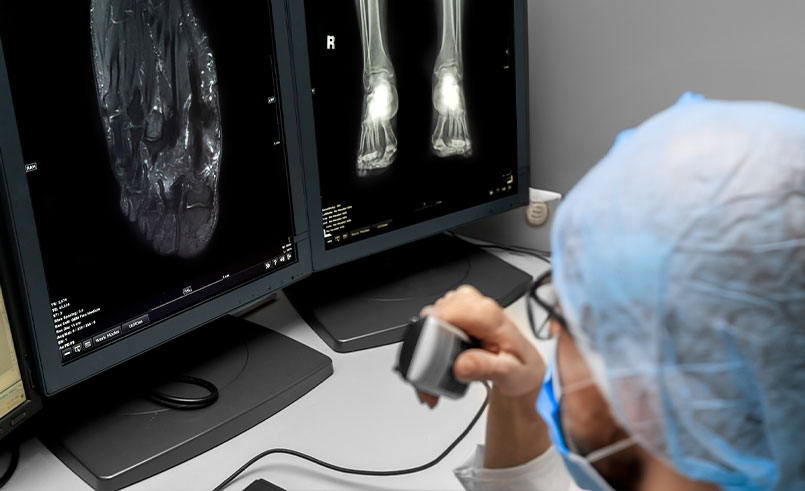Can I Treat Heel Pain On My Own?
RICE therapy – Rest, Ice, Compression and Elevation – is the recommended first treatment for heel pain, especially after a run or prolonged walking.
It helps to alleviate pain, reduce inflammation, and can be applied at home.
Although plantar fasciitis is the leading cause of heel pain, it may not always be the case. That is why getting a thorough evaluation
is necessary to determine the right treatment plan for you.
Diagnosis



Continuing to walk on the affected foot may worsen the injury, and untreated severe plantar fasciitis can result in plantar tears, ruptures, fibromatosis, or heel spurs.
To prevent potential complications, reach us at 9711 8888 for early medical attention.
Treatment Options
Conservative Treatment
- Analgesics: These are pain relief medications that can be taken to ease discomfort during the recovery period.
- Physiotherapy: Performing the right stretches and exercises can improve the range of movement, proprioception, and stability of the knee joint.
- Footwear Adjustment: Changing to supportive footwear and considering inserts or orthotics can optimise foot support and pressure distribution.
- Nonsteroidal Anti-Inflammatory Medication (NSAIDs): Medications like ibuprofen or aspirin can help temporarily reduce pain and swelling.
Interventional Treatment
Heel pain from plantar fasciitis tends to improve and heal within 6 to 18 months. However, if symptoms persist, we offer various treatment options to alleviate discomfort and stimulate healing.
Speak to an orthopaedic specialist to work out which treatment for plantar fasciitis is right for you. Contact Axis Orthopaedic Centre at 9711 8888 for a thorough evaluation today.
Post-Treatment Timeline
Following treatment, a qualified physiotherapist will develop a personalised rehabilitation plan with you. The initial 4 weeks will focus on enhancing strength and flexibility while avoiding strenuous activities like running or jumping. Full recovery may take up to 3 months, but adopting appropriate lifestyle changes significantly contributes to a successful recovery.
Rehabilitation is not just about recovering; it is also about avoiding plantar fasciitis in the future. Wearing supportive shoes with good arch support is vital for prevention. Custom orthotics or shoe inserts can also provide the necessary support and cushioning, especially if you are on your feet a lot or have specific foot shapes.
Regular foot care, like daily stretches and exercises for your feet and lower legs, is crucial. It is a small effort that can make a big difference in keeping your feet healthy and reducing the chances of plantar fasciitis coming back. By integrating these measures into your lifestyle, you not only enhance your recovery but also pave the way for a healthier, pain-free future.

